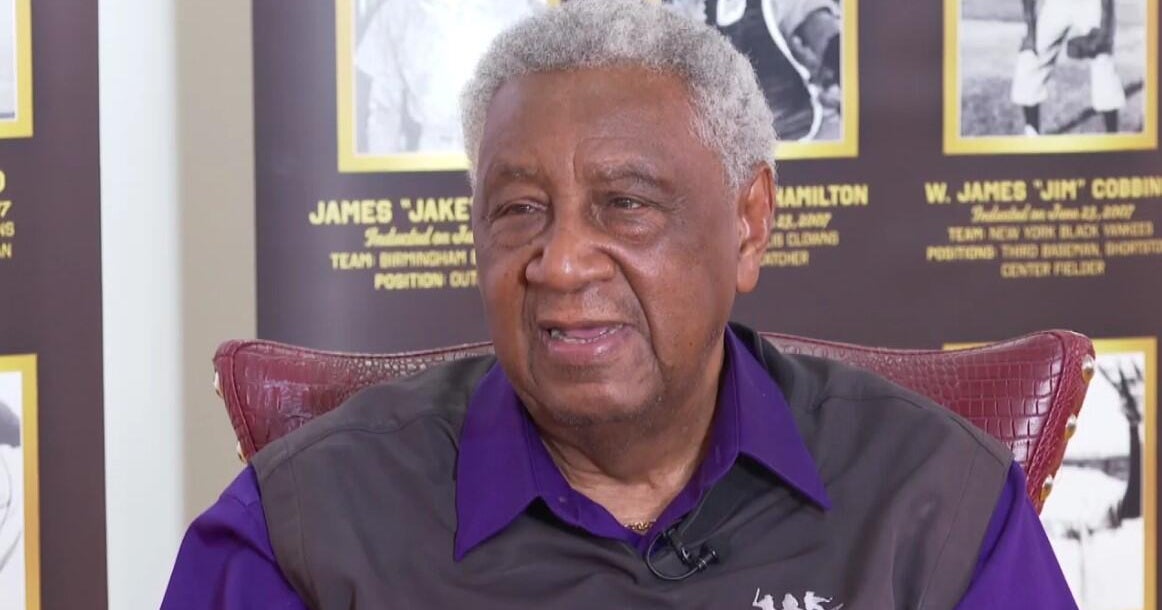Baffoe: The Winning Of Anthony Young
By Tim Baffoe--
(CBS) To defy human odds and even get drafted, in the 38th round and then to actually make the majors and make 1.2-million bucks playing a kids' game for six years? We should all be as fortunate as Anthony Young, the former MLB pitcher who died Tuesday at the too-soon age of 51.
Young had made it known to friends that he had a brain tumor. Many of the headlines in major outlets and tweets from writers announcing his passing shared a glaring theme.
To play a game on its highest stage for years, to never make a name for yourself for any nefarious behavior, to do your job whenever called upon and to be forever known as the guy who lost more decisions in a row than anyone else -- I don't blame the media for attaching the stat to the mention of his name and death. I blame the stat.
We know pitcher win-loss records are stupid and not indicative of talent or performance, but we still reflexively go to them. Wins and losses are team stats that, for some reason, we slap on individuals in baseball and other sports, usually to debase them. "He never won a championship," goes the flawed debate. All the logic in the world of how useless of a stat that wins and losses for pitchers still hasn't divorced us from conversing about them, especially when they become a certain novelty.
Like 27 dumb consecutive stupid pitching whatever losses.
Anthony Young pitched for the Mets from 1991-'93, in the days that a fan of the middling Cubs could say, "At least they're not the Mets." Young pitched for the Cubs in 1994 and 1995, during that great state of youth of mine when every game to me was life or death, usually the latter, and then forgotten about after a night's sleep. The teams he played for had a combined winning percentage of .456. That's not exactly conducive to success with a deeply asinine stat dependent on the performance of eight or more other guys.
Anthony Young never lost a damn thing when he played.
In a 1991 article for the Houston Chronicle, Jerry Wizig wrote:
When (Bragg) Stockton was hired (as manager of the University of) Houston in 1986, he recalled Young had played baseball for the Cougars in 1985, then left the team. "We were pretty thin back then," Stockton said. "I called him in, showed him our schedule, and told him, 'Pick out the games you want to pitch.'" His record for the '87 Cougars baseball team was an unimpressive 3-2 with a 7.56 earned run average. "He'd have one good game, then one bad game," Stockton said. "He pitched a two-hit shutout, struck out about 14, and beat Lamar 1-0 at Beaumont. That was their team that went to the NCAA tournament. That was the game that got Anthony drafted."
Young's infamous losing streak began in 1992 following a 2-0 record that included a complete-game win. He then lost 14 decisions in a row, but only six of them were starts. SABR notes that Young was moved to the bullpen to replace injured closer John Franco and saved 15 of 20 opportunities. Saves are also a flawed stat, and they're also not pitching decisions, so they don't break up the fun of enjoying the misery of something largely out of a pitcher's control. For over a month-and-a-half straight during that time, Young didn't give up a single run. He began the 1993 season in the bullpen, going 0-5 in 17 relief appearances. He then went 0-7 back in the starting rotation. He met with the family of Cliff Curtis -- who held the previous record of 23 straight decisions with a loss (set in 1910-'11 for the Boston Doves and Rustlers) -- and kept the videotape of their meeting.
What a loser, right?
"Loss number 26 might have been the most wrenching," notes his SABR page. "Against San Diego on July 7, Young allowed a lead-off single but then retired 23 straight batters before a single and then a two-run homer by Archi Cianfrocco. Meanwhile, Andy Benes and Gene Harris combined on a one-hitter for the Padres."
Young recorded a save two days before loss No. 27. His ERA during the streak was an un-criminal 4.54.
"This wasn't a monkey off my back," Young said after finally getting credited with a win. "This was a zoo."
"A.Y. took a lot of kidding about his losing records," said Doug Flynn, who participated at Mets fantasy camps with Young. "But he was the victim of some bad luck during the streak. He knew inside he was a better pitcher than his numbers."
But that's what a baseball player is to us: his numbers. Regardless if those numbers are deeply flawed and the person is not.
"Anthony was a true gentleman," former Mets and Cubs pitcher Turk Wendell said. "At this year's fantasy camp, he told us he had a brain tumor. That was Anthony. He never ran away from anything."
Throughout a baseball life full of good stuff and bad stats, Young kept pitching. Through demotions to the minors. Through shuffling between the rotation and bullpen. Through being a laughingstock and Jay Leno's crap monologue jokes and guesting on Leno's show after the streak was over and not beating him into Dorito dust.
"The Mets wouldn't have kept sending me to the mound if I wasn't performing," Young told the Houston Examiner in 2009. "It all just happened and now I'm known for this forever. I set an unusual record that may never be broken."
Young kept at his work -- after a trade, after free agency, after he had to go back to the minors following multiple arm surgeries. Until his body said no more instead of him saying it. He finished with a career ERA of 3.89 and ERA+ of exactly 100, meaning he was exactly average in that regard.
Not a loser.
After his career ended, Young went home to Houston, worked at a chemical plant and then started coaching youth baseball. In 2012, he was at the helm of the top-rated under-14 Elite team in Texas. He coached in those Mets fantasy camps fully knowing that he would only be known there for a losing streak. And he did it with a brain tumor. How many of us have accomplished as much?
We at least haven't accomplished getting past pitcher wins and losses, even when they turn a good man into a hideous freak for the record books. Anthony Young was better than a bad stat, and he should be remembered as such. Because despite something he didn't deserve being forever undeservedly hung around his neck even in death, Anthony Young didn't lose.
Tim Baffoe is a columnist for CBSChicago.com. Follow Tim on Twitter @TimBaffoe. The views expressed on this page are those of the author, not CBS Local Chicago or our affiliated television and radio stations.







